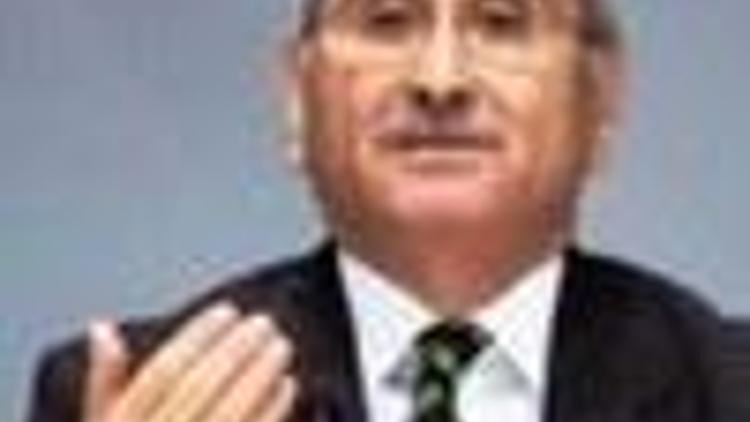High-wire act for the Central Bank
Güncelleme Tarihi:

Turkey's Central Bank is standing on a knife's edge, as it will have to make some tough calls in the near future on whether to keep interest rates at the current level or introduce a slight cut.
Displaying a very aggressive interest rate cut policy within the last three months, the Central Bank has utilized its most efficient weapon in order to put a break on the economy’s contraction.
However, now the Bank is on a knife’s edge, as its Monetary Policy Committee, or PPK, which will gather next week, has concerns due to the uncertainties concerning the talks with the International Monetary Fund, or IMF.
The Central Bank has cut interest rates by 375 basis points within the last three months. After implementing aggressive interest rate cuts due to the assumption that a new deal would reached with the IMF, the Bank is now seeking to establish a lance between maintaining interest rates and introducing a slight rate cut.
On one hand, the increasing stagnation in economy is forcing the Bank to resort to an interest rate cut. The inflation trend also backs such a decision. On the other hand, in this climate of uncertainty the Bank is seeking options that would help stabilize the interest rate in order to be able to prevent the speed of the cash outflow from accelerating.
Following the Jan. 15 meeting, in which a two-point interest rate cut was introduced, the PPK had said that it would bring forward a substantial proportion of the interest rate cuts to take place in the upcoming months. For the most part the markets expect the Central Bank to introduce a reduction of at least 0.50 points. However, experts agree that the Central Bank should maintain the interest rate level at least till the IMF uncertainty is overcome.
The Central Bank, which has signalled the continuation of rate cuts in all statements to date, should stop now, an expert said, requesting to remain anonymous. "The uncertainty concerning the IMF deal should be overcome. I fear it may take an immediate interest rate hike decision if the IMF uncertainty causes cash outflow. Therefore, it would be better for the Bank to wait, but it will probably not," he said.
No clear fiscal policy
"What kind of fiscal policy the government will implement is not clear yet. There is a budget, but nobody believes in its applicability. However, the picture may change if the Central Bank knows something we do not know." A reduction of 0.50-0.75 in short-term interests would not be enough to reinvigorate consumption; however, it may reduce the cost of the Treasury and increase the profit of banks, the expert said.
A fund manager who does not expect the Central Bank to make any changes in the interest prior to seeing the course of the IMF talks said: "If the Central Bank removes the lira’s attraction with an interest rate cut, cash outflow may speed up. That move would leave no reason for people to invest in Turkey. I believe the Central Bank would not do that." Warning that such a decision may result in a rapid devaluation, the fund manager said that the rise in exchange rates might affect inflation.
Noting that the Central Bank should pursue a path similar to the rest of the world, some experts said Turkey would still be among the top three countries, together with South Africa and Hungary, in terms of high interest rates, even if the country’s rate drops to 11 percent.
Those with liquidity may still deposit their money here. Following the latest interest rate cut, a noteworthy move has not taken place in exchange rates, experts also said, predicting interest rates to decline to 11.5 percent by April.

